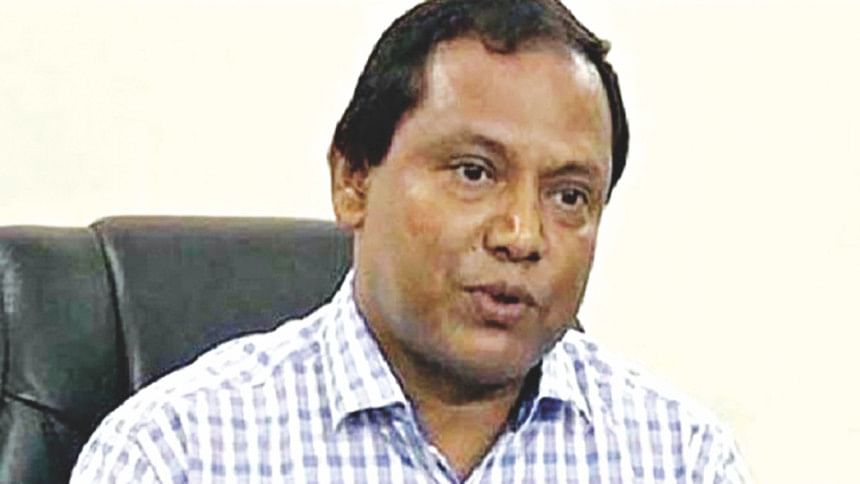Mirza Azam comes down hard on WB, finance ministry

State Minister for Textiles and Jute Mirza Azam yesterday came down heavily on the finance ministry for barring jute and jute goods from getting the status of processed agricultural products despite the prime minister's announcement two years ago.
“There is an 'evil spirit' of the World Bank in the finance ministry. Even the finance minister himself seems to be anti-jute, which is why his officers are dilly-dallying in including jute as agricultural goods.”
Azam's comments came at a roundtable jointly organised by the Economic Reporters' Forum and the ministry of textile and jute at CIRDAP in the capital.
“The file is moving from one table to another in the finance and agriculture ministries and the Bangladesh Bank. There has been no outcome in the past two years.”
The state minister also said the then-government in 2002 had closed down Adamjee Jute Mills in recommendation of the WB, which does not want Bangladesh to thrive in the jute sector.
The WB had also assisted Bangladesh pay off the salaries and wages of employees in the Adamjee Mills.
The state minister also said the Mandatory Jute Packaging Act 2010 has helped in creating a demand for the natural fibre in the domestic market.
So much that the anti-dumping duty imposed by India and the ban on raw jute export have not affected the farmers' returns.
Due to India's anti-dumping duty, Bangladesh had to abandon shipment of 1.5 lakh tones of raw jute to the neighbouring country, he said.
“As a response to India's move, we have expanded the mandatory jute packaging to 17 products from six at that time,” Azam said.
Jute production increased to 91 lakh bales in 2017, up from 85 lakh bales in 2016 and 68 lakh bales in 2015.
The minister also touched upon the state-run Bangladesh Jute Mills Corporation that runs 27 mills and employs more than 60,000.
The BJMC made losses every year save for two because of rampant corruption and higher wages.
“Our workers' wages are more than double that of private mills',” Azam said.
The state minister said if they could modernise some of the jute mills BJMC's losses would go down significantly.
Seed is a big problem for Bangladesh's jute production as farmers have to rely on India for 70 to 80 percent of their needs, said Shykh Seraj, an agriculture development activist.
“Often farmers do not get seeds on time and those are not up to the mark,” he added. Foyuzur Rahman Chowdhury, secretary of the ministry of textile and jute, echoed the same on Indian seeds.
“We have to produce our own seeds,” he noted.
Bangladesh has diversified jute goods to nearly 250, up by 100 from a year earlier, according to the Jute Diversify Promotion Centre.
Saif Islam Dilal, president of ERF, chaired the programme; Mahmudul Hassan, chairman of Bangladesh Jute Mills Corporation, spoke among others.

 For all latest news, follow The Daily Star's Google News channel.
For all latest news, follow The Daily Star's Google News channel. 




Comments